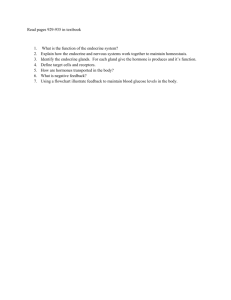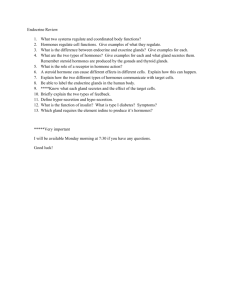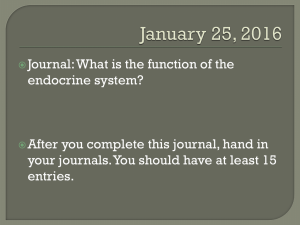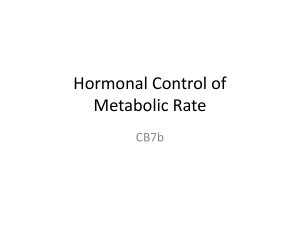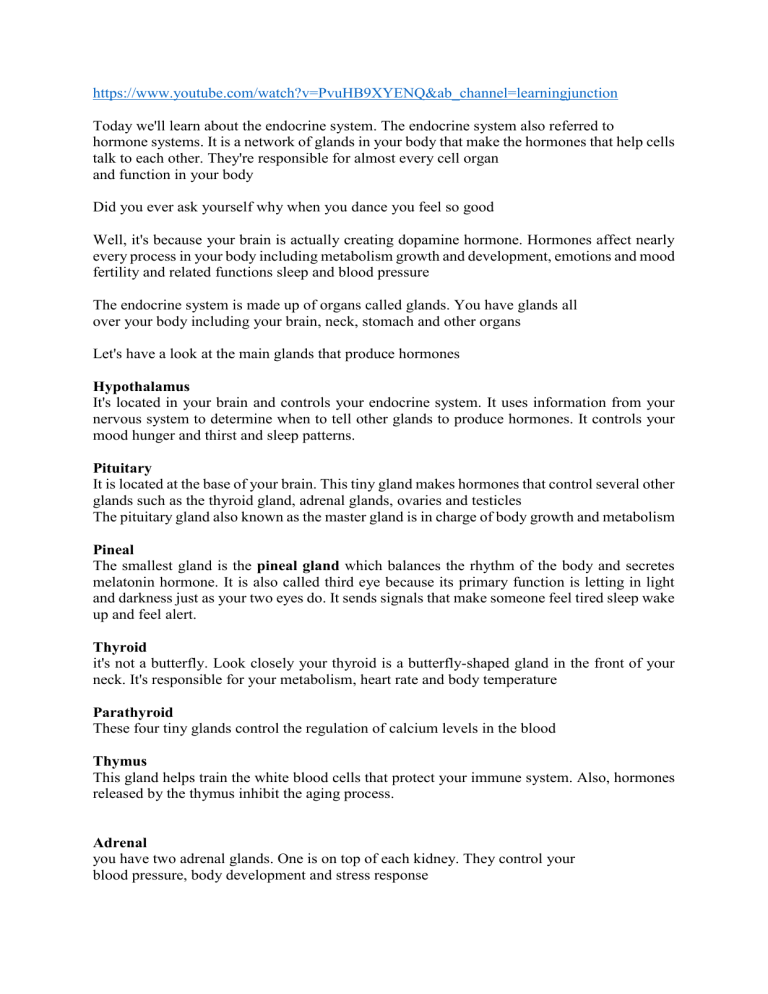
https://www.youtube.com/watch?v=PvuHB9XYENQ&ab_channel=learningjunction Today we'll learn about the endocrine system. The endocrine system also referred to hormone systems. It is a network of glands in your body that make the hormones that help cells talk to each other. They're responsible for almost every cell organ and function in your body Did you ever ask yourself why when you dance you feel so good Well, it's because your brain is actually creating dopamine hormone. Hormones affect nearly every process in your body including metabolism growth and development, emotions and mood fertility and related functions sleep and blood pressure The endocrine system is made up of organs called glands. You have glands all over your body including your brain, neck, stomach and other organs Let's have a look at the main glands that produce hormones Hypothalamus It's located in your brain and controls your endocrine system. It uses information from your nervous system to determine when to tell other glands to produce hormones. It controls your mood hunger and thirst and sleep patterns. Pituitary It is located at the base of your brain. This tiny gland makes hormones that control several other glands such as the thyroid gland, adrenal glands, ovaries and testicles The pituitary gland also known as the master gland is in charge of body growth and metabolism Pineal The smallest gland is the pineal gland which balances the rhythm of the body and secretes melatonin hormone. It is also called third eye because its primary function is letting in light and darkness just as your two eyes do. It sends signals that make someone feel tired sleep wake up and feel alert. Thyroid it's not a butterfly. Look closely your thyroid is a butterfly-shaped gland in the front of your neck. It's responsible for your metabolism, heart rate and body temperature Parathyroid These four tiny glands control the regulation of calcium levels in the blood Thymus This gland helps train the white blood cells that protect your immune system. Also, hormones released by the thymus inhibit the aging process. Adrenal you have two adrenal glands. One is on top of each kidney. They control your blood pressure, body development and stress response Exocrine Kidney is traditionally regarded as an exocrine gland producing urine to regulate body fluid volumes in composition and to excrete nitrogenous wastes. Pancreas It is the largest gland, and it performs two main functions exocrine function produces enzymes that help with digestion. Endocrine Endocrine function sends out hormones that control the amount of sugar in your bloodstream. Ovaries Women have two ovaries in their lower abdomen one on either side. The ovaries release sex hormones called estrogen, progesterone and testosterone. Testes in men the testes make sperm and release the hormone testosterone. This hormone affects sperm production and muscle strength. Sometimes glands produce too much or not enough of a hormone this imbalance can cause health problems you should exercise eat right and see your health care provider regularly. Managing these conditions can help you avoid a hormone imbalance that can lead to health problems.


